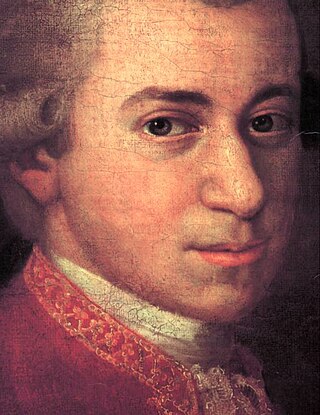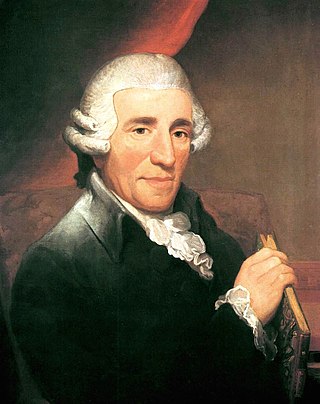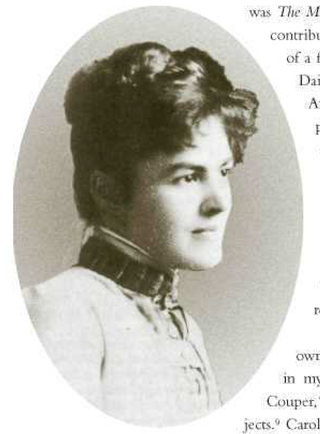
Boone County is a county located on the Ohio River in the northernmost part of the U.S. state of Kentucky. As of the 2020 census, the population was 135,968, making it the fourth-most populous county in Kentucky. Its county seat is Burlington. The county was formed in 1798 from a portion of Campbell County. and was named for frontiersman Daniel Boone. Boone County, with Kenton and Campbell Counties, is of the Northern Kentucky metro area, and the Cincinnati-Middletown, OH-KY-IN Metropolitan Statistical Area. It is the location of the Cincinnati/Northern Kentucky International Airport, which serves Cincinnati and the tri-state area.

Zaide is an unfinished German-language opera, K. 344, written by Wolfgang Amadeus Mozart in 1780. Emperor Joseph II, in 1778, was in the process of setting up an opera company for the purpose of performing German opera. One condition required of the composer to join this company was that he should write a comic opera. At Salzburg in 1779 Mozart began work on a new opera. It contains spoken dialogue, which also classifies it as a Singspiel. Only the arias and ensembles from the first two acts were composed. Missing are an overture and third act.

Jessye Mae Norman was an American opera singer and recitalist. She was able to perform dramatic soprano roles, but did not limit herself to that voice type. A commanding presence on operatic, concert and recital stages, Norman was associated with roles including Beethoven's Leonore, Wagner's Sieglinde and Kundry, Berlioz's Cassandre and Didon, and Bartók's Judith. The New York Times music critic Edward Rothstein described her voice as a "grand mansion of sound", and wrote that "it has enormous dimensions, reaching backward and upward. It opens onto unexpected vistas. It contains sunlit rooms, narrow passageways, cavernous halls."

Angela M. Brown is an American dramatic soprano particularly admired for her portrayal of Verdi heroines.

Denyce Graves is an American mezzo-soprano opera singer.
Escrava Isaura is a 1976 Brazilian telenovela produced by TV Globo, originally broadcast between October 11, 1976 and February 5, 1977. Based on the 1865 novel of the same name by 19th century abolitionist writer Bernardo Guimarães, it tells the story of the struggles of Isaura, a mixed-race slave, to find happiness during the Brazilian Empire. It starred Lucélia Santos in the title role and Rubens de Falco as slave owner Leôncio Almeida, the main antagonist. It was adapted by Gilberto Braga and directed by Herval Rossano and Milton Gonçalves, running 100 episodes.

Margaret Garner, called "Peggy", was an enslaved African-American woman in pre-Civil War America who killed her own daughter rather than allow the child to be returned to slavery. Garner and her family had escaped enslavement in January 1856 by traveling across the frozen Ohio River to Cincinnati, but they were apprehended by U.S. Marshals acting under the Fugitive Slave Act of 1850. Garner's defense attorney, John Jolliffe, moved to have her tried for murder in Ohio, to be able to get a trial in a free state and to challenge the Fugitive Slave Law. Garner's story was the inspiration for the novel Beloved (1987) by Nobel Prize-winning author Toni Morrison and its subsequent adaptation into a film of the same name starring Oprah Winfrey (1998).

John Pollard Gaines was a U.S. military and political figure. He was a Whig member of the United States House of Representatives, representing Kentucky from 1847 to 1849, and he served as Governor of the Oregon Territory from 1850 to 1853, stepping down after a turbulent term in office. He was the owner of Margaret Garner, whose enslavement and sexual assault is the basis for Toni Morrison's novel, Beloved.

Jubilee (1966) is a historical novel written by Margaret Walker, which focuses on the story of a biracial slave during the American Civil War. It is set in Georgia and later in various parts of Alabama in the mid-19th century before, during, and after the Civil War.

Laura Smith Haviland was an American abolitionist, suffragette, and social reformer. She was a Quaker and an important figure in the history of the Underground Railroad.

Koanga is an opera written between 1896 and 1897, with music by Frederick Delius and a libretto by Charles Francis Keary, inspired partly by the book The Grandissimes: A Story of Creole Life by George Washington Cable (1880). Inspiration also came from Delius's own experiences as a young man, when his family sent him to work in Florida. It was Delius's third opera, and he thought better of it than of its predecessors, Irmelin and The Magic Fountain, because of the incorporation of dance scenes and his treatment of the choruses. Koanga is reputed to be the first opera in the European tradition to base much of its melodic material on African-American music.
Solomon Bayley was a formerly enslaved African American who is best known for his 1825 autobiography entitled A Narrative of Some Remarkable Incidents in the Life of Solomon Bayley, Formerly a Slave in the State of Delaware, North America. Published in London, it is among the early slave narratives written by enslaved people who gained freedom before the American Civil War and emancipation. Bayley was born into slavery in Delaware. After escaping and being recaptured, he bought his freedom, including his wife and children. He worked as a farmer and at a sawmill. In their later years, he and his wife emigrated in 1827 to the new colony of Liberia, where he worked as a missionary and farmer. His short book about the colony was published in Delaware in 1833.

Armida is a 1784 opera in three acts by Austrian composer Joseph Haydn, set to an Italian-language libretto taken from Antonio Tozzi's 1775 opera Rinaldo, as amended by Nunziato Porta, and ultimately based on the story of Armida and Rinaldo in Torquato Tasso's poem Gerusalemme liberata.
Detroit Opera is the principal opera company in Michigan, US. The company is based in Detroit, where it performs in the Detroit Opera House. Prior to February 28, 2022, the company was named Michigan Opera Theatre.

Kelly Kaduce is an American soprano. She was born in Winnebago, Minnesota, United States of America. A graduate of St. Olaf College and Boston University, Kaduce won the 1999 Metropolitan Opera National Council Auditions.

Underground is an American television period drama series created by Misha Green and Joe Pokaski about the Underground Railroad in Antebellum Georgia. The show debuted March 9, 2016, on WGN America. On April 25, 2016, WGN renewed the show for a 10-episode second season, that premiered on March 8, 2017. On May 30, 2017, it was announced that WGN had cancelled the show after two seasons. The cancellation came after the network's parent company Tribune Media was attempted to be purchased by conservative corporation Sinclair Broadcasting Group, which led to speculation that the latter did not approve of the subject matter of the show.
George DeBaptiste was a prominent African-American conductor on the Underground Railroad in southern Indiana and Detroit, Michigan. Born free in Virginia, he moved as a young man to the free state of Indiana. In 1840, he served as valet and then White House steward for US President William Henry Harrison, who was from that state. In the 1830s and 1840s DeBaptiste was an active conductor in Madison, Indiana. Located along the Ohio River across from Kentucky, a slave state, this town was a destination for refugee slaves seeking escape from slavery.

Nikki M. Taylor is an American historian. She is professor of history at Howard University and author of four books on nineteenth-century African-American history.
Wright Modlin or Wright Maudlin (1797–1866) helped enslaved people escape slavery, whether transporting them between Underground Railroad stations or traveling south to find people that he could deliver directly to Michigan. Modlin and his Underground Railroad partner, William Holden Jones, traveled to the Ohio River and into Kentucky to assist enslave people on their journey north. Due to their success, angry slaveholders instigated the Kentucky raid on Cass County of 1847. Two years later, he helped free his neighbors, the David and Lucy Powell family, who had been captured by their former slaveholder. Tried in South Bend, Indiana, the case was called The South Bend Fugitive Slave Case.

Caroline Couper Stiles Lovell was an American artist and writer. She was a central figure in the cultural life of Birmingham, Alabama in the late 19th and early 20th century.














